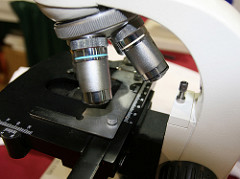The United States Department of Agriculture recently announced an investment of over $5.2 million to support nanotechnology research at 11 universities. The universities will research how nanotechnology might improve food safety, enhance renewable fuels, increase crop yields, and manage agricultural pests. The awards were made through the USDA’s Agriculture and Food Research Initiative (AFRI), a competitive grant program from the National Institute of Food and Agriculture (NIFA).
Universities receiving funding include Auburn University, University of Central Florida, University of Georgia, Iowa State University, Mississippi State University, and University of Wisconsin, among others.
According to the Food and Drug Administration, nanotechnology allows scientists to create, explore and manipulate materials on a scale measured in nanometers — particles so small that they cannot be seen with a regular microscope. The technology has a broad range of potential applications, such as the packaging of food.
Food Business News reports that research applications for nanotechnology vary, but Auburn University has proposed creating a pathogen monitoring system that can detect multiple foodborne pathogens simultaneously, accurately, and cost effectively. According to fooddive.com, researchers from Texas A&M University recently used nanotechnology to develop a thin-coating polymer that can preserve food similar to the way glass can, but without the damaging effects of plastics.
A press release of the announcement is available here.
